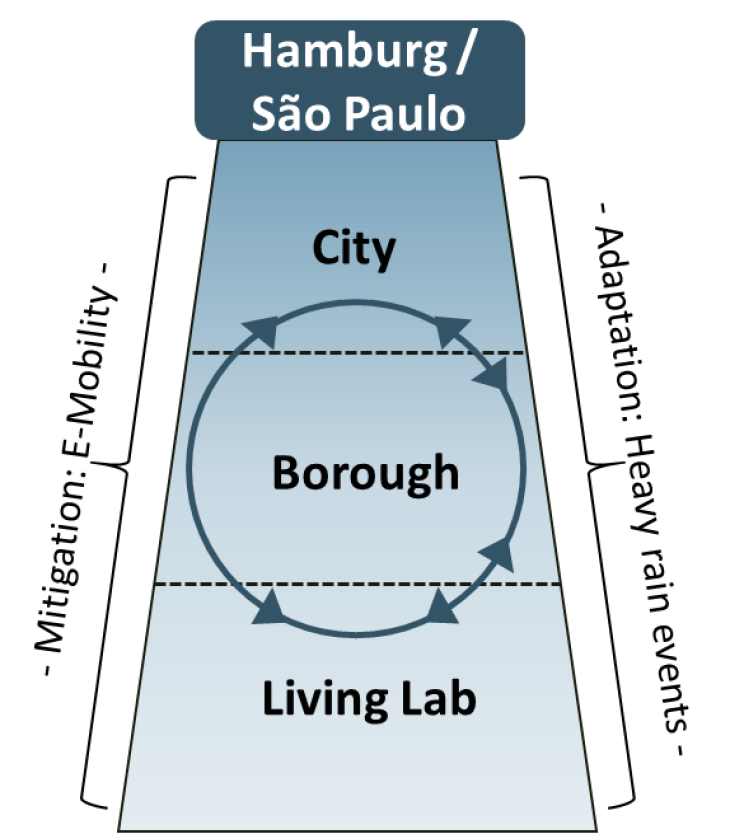Research design for the comparative multi-level governance analysis of the cases Hamburg and São Paulo defined
Recent literature points out that the “usability” of climate information often remains defined by the content and format of knowledge to be tailored to users’ needs and capacity. However, decision-making is not merely based on available knowledge and cities do not represent a homogenous entity. Instead, decision-making as well as processes of co-production are embedded in a complex multi-governance system, influenced by diverse and conflicting regulations, practices, interests, narratives and values that give meaning to facts. It is argued that what climate information is considered as usable is dependent on the local context, can be contested between institutional and actor arrangements and may shift over time.
With the beginning of iSPECS in February 2020, we conducted a literature research aiming to map the current state of research and specify our research approach concerning the question what influences the (non-)use of climate information in urban decision-making. To capture the complex arrangements and interactions of governing climate change in our two city cases Hamburg and São Paulo, we decided to investigate one field of mitigation (E-Mobility) and one field of adaptation (heavy precipitation events) implemented each on three different scales through different means: formal approaches on the city-wide level; its implementation on the borough level; and living labs on the local level (see fig. 1).

Fig. 1: Illustration of the iSPECS research design
These fields of activities and their implementation on the three scales were chosen as they represent relevant challenges in São Paulo and Hamburg and are implemented – although with different approaches – on all the three levels in the two cities. In the upcoming empirical work, we will conduct interviews with representatives of selected projects and administrative bodies. A particular research interest will be, if climate information use and decision-making differ in the governance settings, and how these shape and contest each other. Due to the Covid-19 pandemic, the Brazilian part of the project currently has to be postpone. The developed research design, however, allows a comparative analysis as soon as research can be conducted by the Brazilian counterpart.

